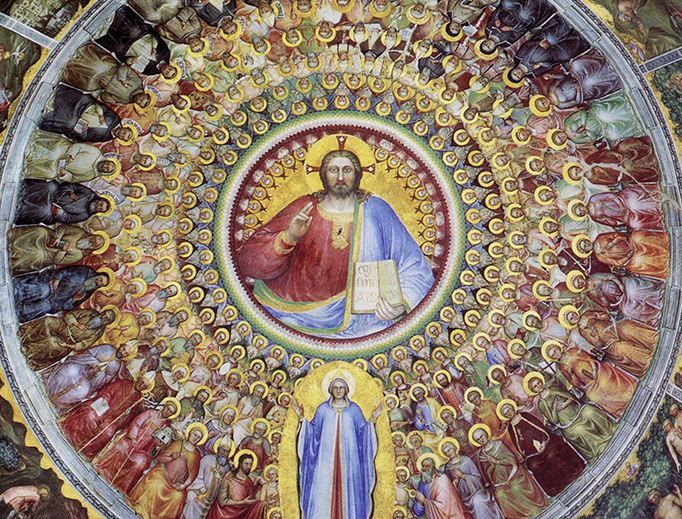“An indulgence is a remission before God of the temporal punishment due to sins whose guilt has already been forgiven, which the faithful and duly disposed Christian obtains under certain conditions prescribed by the action of the Church which, as minister of redemption, dispenses and authoritatively applies the treasury of the satisfactions of Christ and the saints. (CCC 1471)
There are very few words in Christian theology that cause as much confusion and controversy as the word “indulgence,” and yet not one in 100,000 people who reject it can explain it accurately.
The concepts of Purgatory and indulgences are inextricably linked, because the blessed in Heaven do not need our prayers. It is we, in fact, who need their prayers. The most common misconception is that indulgences erase sins. This is flat out incorrect. This is what the sacrament of reconciliation does. Instead, indulgences are a remission of the temporal punishment due for sins already forgiven through sacramental confession.
The example I was taught as a child was that if a nail was driven into a piece of wood, the nail might be retracted but the hole would remain. Likewise, if someone is punched in the face, breaking his nose and glasses and blackening his eyes, the puncher might feel genuine remorse and that remorse might lead him to the sacrament of Reconciliation by which he would surely be forgiven of his sin. Unfortunately, this does the punchee very little good. The man who was the target of the puncher’s wrath still has a bruised and broken nose, a pair of broken glasses and a swollen eye. Is it fair to suggest that once the sinner has been forgiven in confession, he has no obligation to the man he attacked? This is horrible psychology and sociology, and bad theology and spirituality.
Forgiveness is assured through Christ’s sacrifice and the Church’s mediation of God’s grace, but the debt accumulated by sin is still present. Would Bernie Madoff, the American businessman who perpetrated the largest investor fraud ever committed in world history, stealing an estimated $50 billion, be forgiven simply because he is thrown at the mercy of the court? His actions caused the collapse of several businesses and charities and the death of his son and at least one of his investors, René-Thierry Magon de la Villehuchet. Despite the horrific evil he has committed, including lies, wire fraud, securities fraud, mail fraud and money laundering, would it be spiritually acceptable and theologically “accurate” for Madoff to apologize? while keeping the money? If he has no intention of helping those he has hurt, can we say that he truly feels remorse? If he doesn’t feel remorse, why bother asking for forgiveness?
Thus, indulgences themselves do not erase sins. This is not a “card to get out of Purgatory”. They are, instead, a means by which the faithful can make full reparation for their sins and be inspired to love others – the opposite of sin. Sacred Scripture reinforces the need for indulgences by emphasizing the pernicious and perfidious nature of sin (James 1:14-15):
But we are tempted when we are led and trapped by our own perverse desires. Then our evil desires conceive and give birth to sin; and sin, when fully developed, gives birth to death.
There are two kinds of sins that humans can commit: deadlywhich constitutes a serious offense committed knowingly and freely, and venial. All sin is serious and “represents an unhealthy attachment to creatures”, that is to say to the material world, and therefore constitutes a rejection of God.
Indulgences can be full or partial and are granted for specific good works and prayers. They are granted after the penitent has confessed and received absolution from the Church. The Church teaches that indulgences draw from the treasury of grace accumulated by the sacrifice of Christ and the virtues and penances of all Christians — those in heaven, purgatory and earth.
As we are united with all Christians, dead or alive, we believe that the living can help the souls in Purgatory through our prayers and our indulgences performed with the expressed desire to help them. Due to revisions made during Vatican II, Pope Paul VI clarified the Church’s position on indulgences not only as a way to atone for their sins, but also to inspire the faithful to a greater love of Christ while showing their sorrow for their sins. As the Pope writes in his Indulgentarium Doctrine: “Indulgences cannot be obtained without a sincere conversion of outlook and unity with God. »
The Church recognizes two types of indulgences: plenary And partial. To obtain a plenary indulgence, which until then remits all temporal punishment, the faithful must:
- avoid all attachment to sin,
- perform the indulgent act,
- receive the sacramental of Penance,
- receive Holy Communion,
- and pray for the intentions of the Holy Father.
To obtain a partial indulgence, the faithful must:
- to be contrite and sad for their sins
- perform the act of mercy/penance.
Plenary indulgences can be obtained in several ways, including:
- pray before the Blessed Sacrament for at least half an hour,
- praying the stations of the cross,
- pray the Rosary in a church, with family, with a community or religious group,
- read the Holy Scriptures for at least half an hour,
- receive a pope Urbi and orbi blessing in person, on the radio or on television on January 1st each year,
- participate in a spiritual retreat of at least three full days, and
- participate in the Santiago de Compostela pilgrimage to northern Spain and walk at least 100 kilometers along it.
By the grace of God, our prayers are effective in helping others. Certainly, all Christians understand that our prayers can help those who are currently alive. Catholics, Orthodox, and many other Christians believe that our prayers for the deceased have the same effect.


